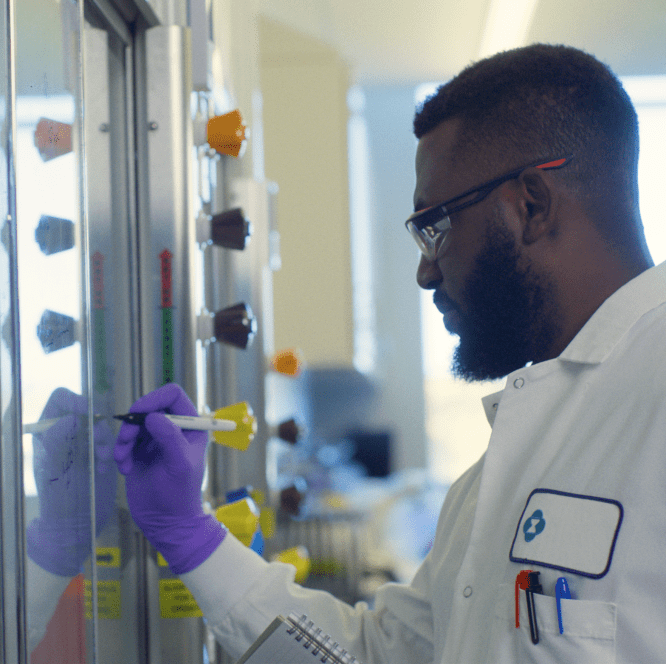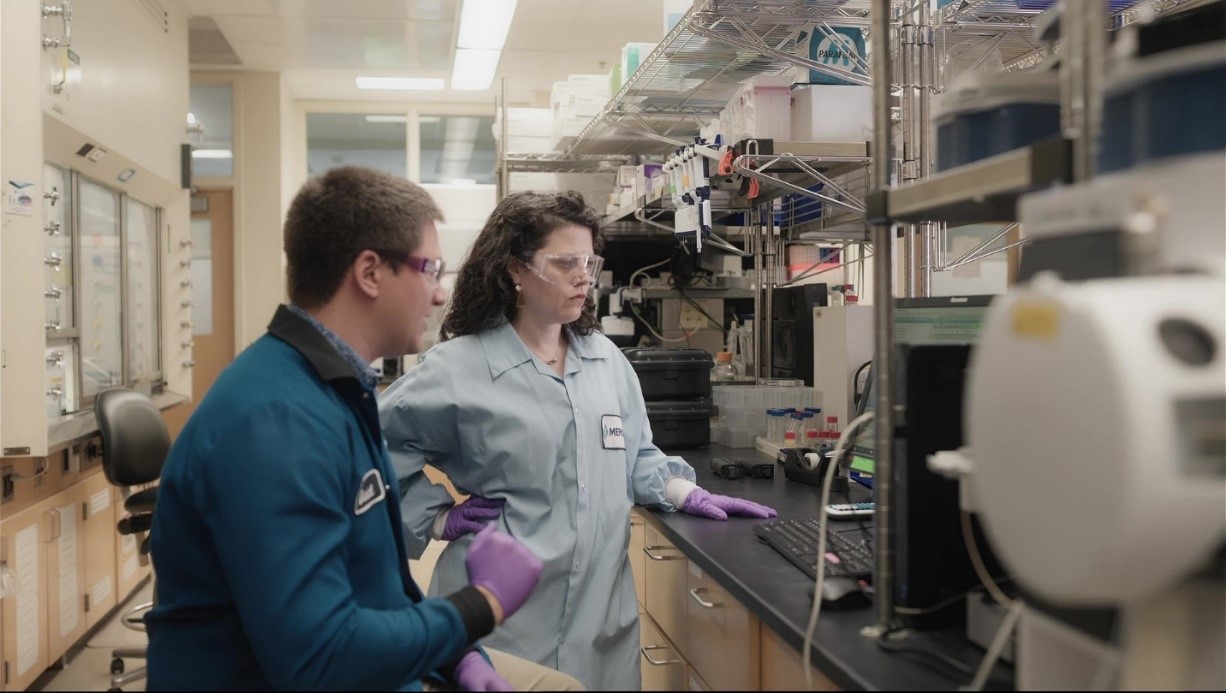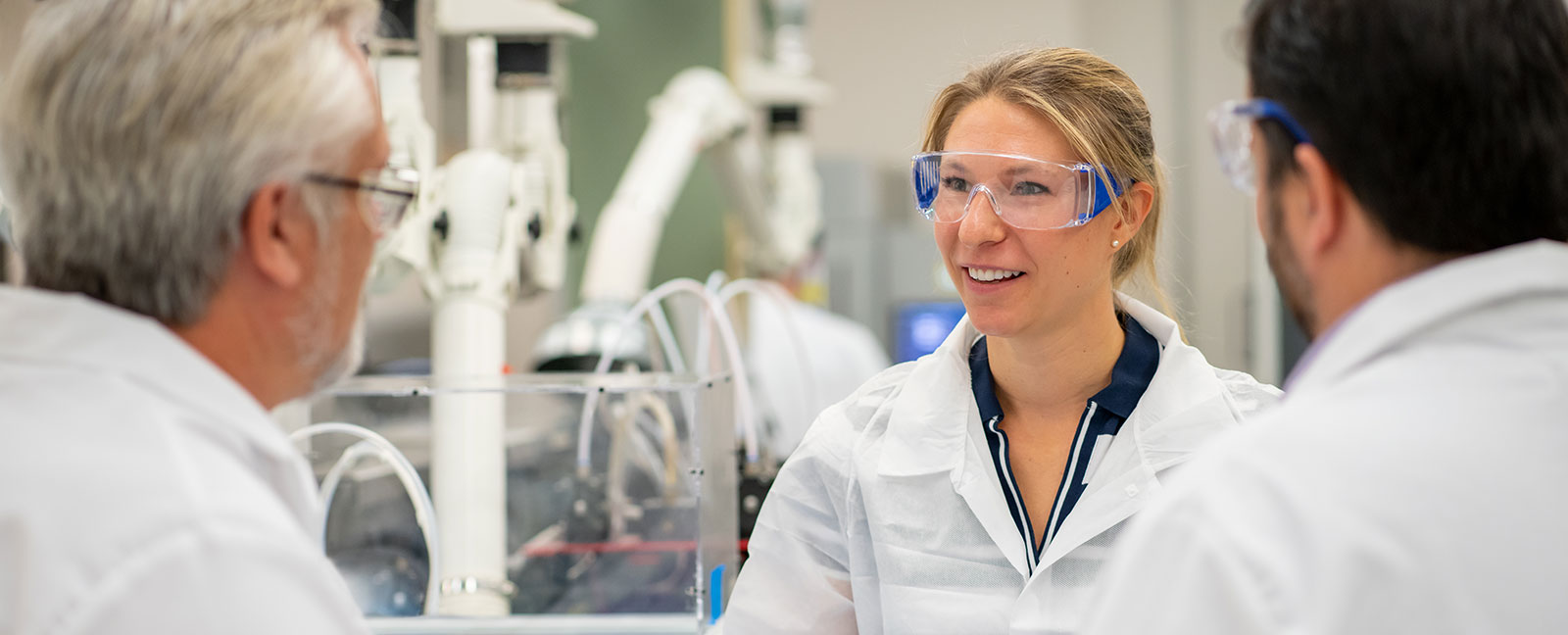
Oncology
We’re working to invent a world where cancer isn’t just treated, but cured — or even where some types are prevented from happening in the first place.
Reflecting on a decade of progress in cancer care
Patients are our inspiration as we continue to pursue the fight against cancer.

Our focus | Discovery efforts | Community support | Stories
Our focus on cancer research and treatments
We work with urgency to pursue breakthrough science to not only prolong lives, but protect them, too. Because people with cancer deserve more — more ways to treat their cancer, more quality in their lives and more time.
We’re committed to advancing cancer research with one of the largest development programs in the industry across more than 30 tumor types. Learn more about key areas of research:
Bladder cancer
The most common form of bladder cancer is urothelial cancer, accounting for about 90% of cases. Urothelial cancer begins in the urothelial cells, which line the urethra, bladder, ureters, renal pelvis and some other organs.
Blood cancer
Blood (hematologic) cancers start in the bone marrow where blood cells develop. The most common types of blood cancers are leukemia, lymphoma and myeloma.
Breast cancer
Breast cancer is the most common type of cancer worldwide. This disease has many subtypes, including aggressive subtypes such as triple-negative breast cancer (TNBC), which accounts for 10-15% of all breast cancer.
Gastrointestinal (GI) cancers
The most common GI cancers are esophageal, gastric (stomach), colorectal, pancreatic and liver. These cancers typically do not cause symptoms until they have reached an advanced stage.
Gynecological cancers
Gynecological cancers encompass several types of cancer that affect the female reproductive system, including ovarian, cervical, uterine (endometrial), vaginal and vulvar cancer.
Head and neck cancer
Head and neck cancers refer to tumors that develop in or around the throat, larynx, nose, sinuses and mouth.
Lung cancer
Globally, lung cancer is the leading cause of cancer deaths, accounting for nearly 18% of all deaths from cancer.
Melanoma
Melanoma is a serious form of skin cancer, and rates of the disease have been continuing to rise over the last several decades.
Prostate cancer
Globally, prostate cancer is the second most common cancer in people assigned male at birth. In the U.S., one-third of people diagnosed at an advanced stage survive five years after diagnosis.
Renal cell carcinoma
Renal cell carcinoma (RCC) is by far the most common type of kidney cancer; about 90% of kidney cancers cases are RCCs.
Our oncology discovery and development efforts
Our relentless focus on achieving the next breakthrough in cancer care is inspired by the lives we aim to prolong and protect. We’re following the science to discover innovations that can help patients no matter what stage of cancer they have, or so they may never be diagnosed with some types at all.
Supporting the cancer community
We work with the entire oncology community — advocacy partners, health care providers, governments and industry colleagues — to create programs that help patients and caregivers on their journeys, as well as provide grants to organizations that support patients with cancer.
Oncology stories
Hear from people living with cancer and the researchers working to tackle one of the world’s greatest health challenges.








